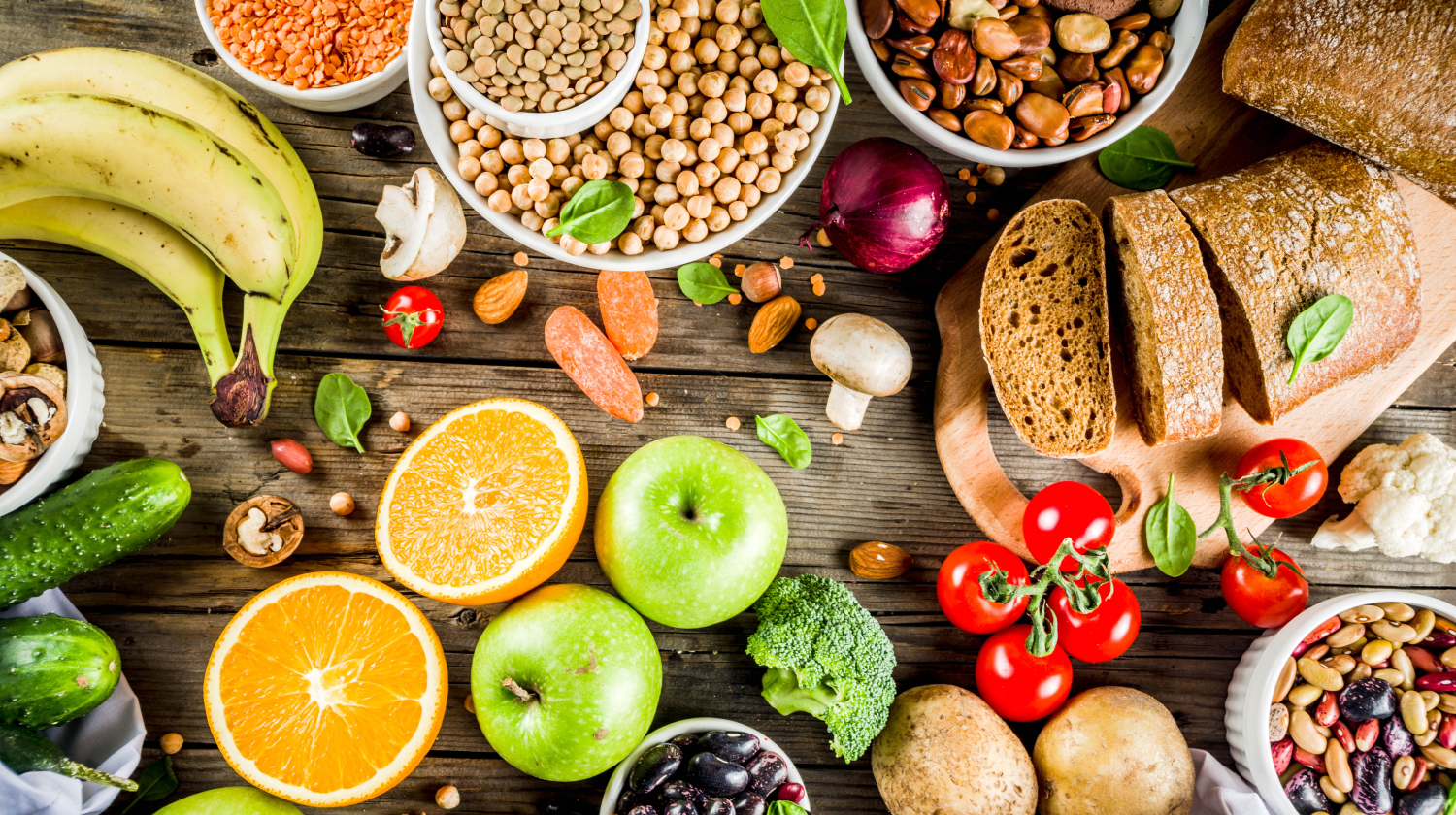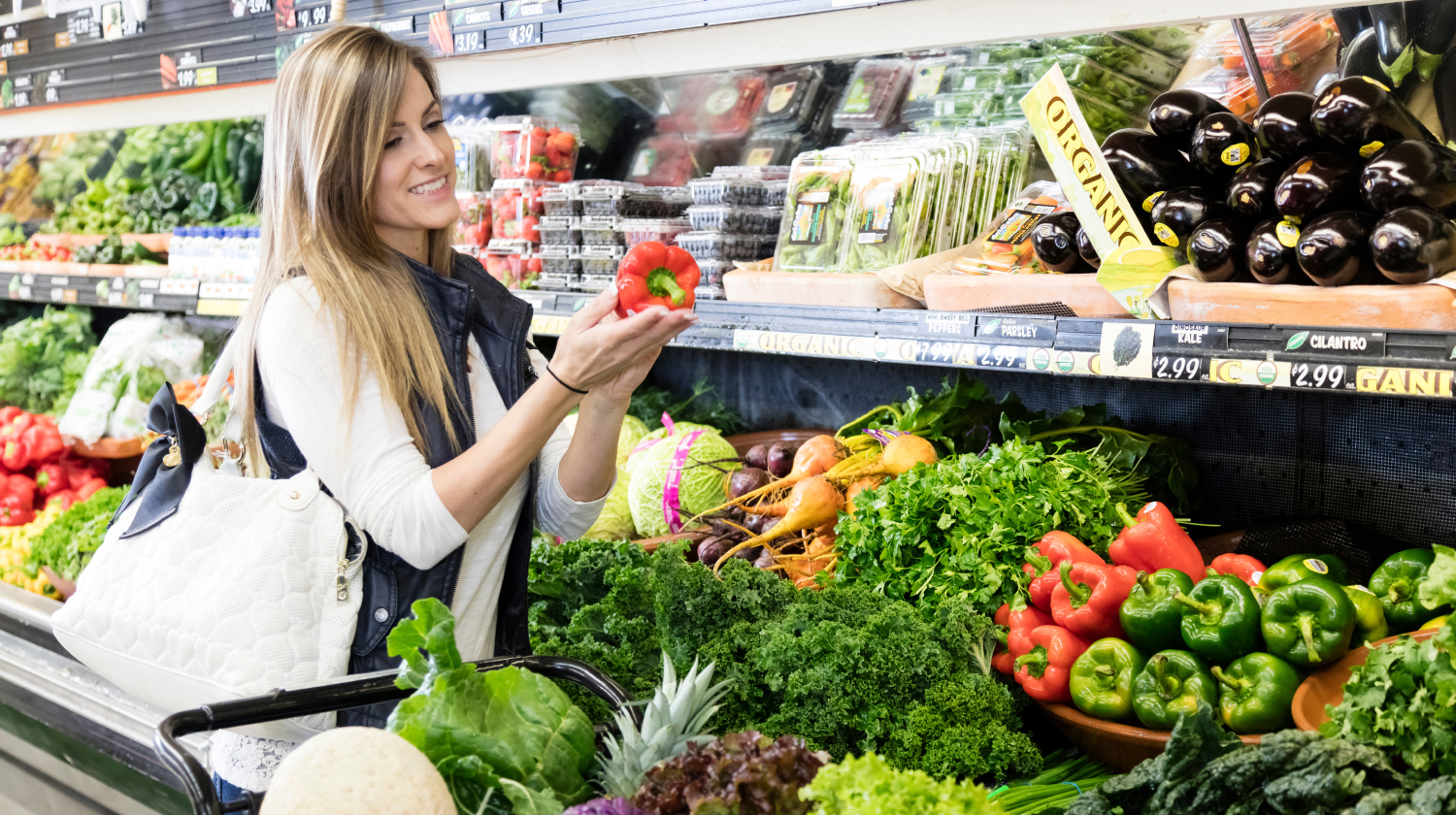No Sugar Diet: Pros, Cons, Food Lists & Diet Plan To Follow 2024

You’ll find a plethora of no-sugar diet weight loss programs online, but do any of them actually give you long-lasting changes? Most are too strict and unrealistic, especially since almost every packaged food comes with hidden added sugars.
Luckily, if you give yourself time to slowly adapt to lessening processed sugars while increasing natural sugar, you’ll have a much easier time going sugar-free. You’re also more likely to avoid feeling restricted and begin to enjoy healthier foods. Taste buds also change every two weeks,[1] meaning that as you cut back, you’ll begin to notice naturally occurring sugars even more.
In the end, strict dieting can be extremely stressful and even lead to disordered eating habits[2] and weight gain. Read on to find out how to slowly go sugar-free without harming your mental or physical health.
What Is A No Sugar Diet?
Most no-sugar diet plans are overly restrictive and recommend eating zero added sugar for anywhere from one week to one month. The goal is to focus on eating more natural whole foods to end your body’s sugar dependence and reap all the physical and mental rewards, like weight loss, more energy, and better sleep.
The thing is, added sugars are everywhere: in your ketchup, canned beans, potato chips, crackers, and salad dressings. Even jam, which could be entirely made of nothing but fruit, has copious amounts of added sugar. That’s why you can feel doomed to eat nothing but steamed vegetables if you go sugar-free too quickly and harshly.
People tend to become depressed and uninterested in eating less sugar when they cut it out completely, so don’t set yourself up for failure. Instead, if you were to slowly reduce your sugar in a manageable way, you would be more likely to keep eating less long-term.
Benefits Of No Sugar Diet
Excessive sugar intake is one of the most inflammatory and disruptive chemicals processes our bodies can experience. Reducing sugar has a variety of wide-reaching benefits, including:
Improved Physical Health
You’ll develop a reduced risk of, and a decrease in, signs and symptoms of many physical health conditions,[3] such as:
- Weight gain and obesity.
- Hormonal disorders.
- Heart disease.
- Diabetes.
- Cancer.
- Gum disease.
- Fatty liver disease.
- Irritable bowel syndrome and other digestive issues, such as constipation and diarrhea.
- High cholesterol and blood pressure.
- Skin issues, including eczema, rashes, and acne.
- Those due to inflammation and related conditions, such as arthritis, back pain, headaches, fatigue, etc.
Usually, a no-sugar diet results in weight loss, improved cognition, balanced hormones, better gut health, and improved insulin sensitivity. Fortunately, you don’t need a zero-sugar diet plan to reap the benefits. Reducing even a little bit of sugar will already offer you huge benefits.
Balanced Mental Health
Aside from noticing physical improvements, you’ll also see an impressive improvement in your mental health,[4] including:
- Reduced symptoms of anxiety and depression.
- More energy.
- Better sleep.
- Balanced mood.
- Increased concentration and cognitive functioning.
Long-Term Healthy Diet Changes
Finally, a no-sugar diet meal plan may force you to experiment with new foods, flavors, recipes, and restaurants, helping you to discover healthy foods you’ll want to incorporate into your daily life. For example, if you normally reach for chocolate, a pastry, or coffee with cream when you’re tired at work, you might instead go for mixed nuts and a piece of fruit or a walk outdoors for fresh air to get energized.
Plus, there’s the added benefit of your taste buds becoming more sensitive as you eat less processed foods extremely high in sugar. Soon enough, you may love eating 90% dark chocolate and find soda to taste like an overly strong chemical syrup concoction that you can’t stand.
Potential Drawbacks
If you slowly reduce your sugar intake[5] and replace it with nutritious foods you enjoy, there aren’t likely to be any negative consequences. If, however, you quickly and severely restrict yourself, you might experience some drawbacks, such as:
Feeling Restricted
Going completely sugar-free is difficult even for people who don’t normally consume sugar. It’s, unfortunately, hiding in most packaged foods and is part of almost every dessert. That’s why putting pressure on yourself to restrict it completely is so difficult; it’s not a realistic long-term goal.
If you can manage to do it for a short time and don’t mind going through potential withdrawal, it might be the motivation you need to challenge yourself to try new foods and reduce sugar. However, keep in mind that restrictive diets often lead to yo-yo dieting, weight gain, and eating disorders.[2] That is, if you’re suffering, it’s a sign to reduce the restrictions.
Research also shows that slowly changing one habit at a time[6] is the most physically and mentally healthy approach to long-term results. That’s why it’s best to start slow and be patient with yourself as you start anything new. Remember — you don’t gain weight in a short amount of time; don’t expect to lose it quickly, either.
Withdrawal Symptoms
If you’re used to high-added sugar, its sudden removal could give you withdrawal symptoms[7] for the first few days, including:
- Headaches.
- Difficulty sleeping.
- Mood swings.
- Anxiety.
- Depression — the hopelessness that comes with failure can cause depression, i.e., another reason to avoid unfeasible strategies.
- Sugar cravings.
- Difficulty concentrating.
Fortunately, withdrawal symptoms can be avoided if you allow your body time to slowly adapt to less sugar. It’s also the best way to increase your chances of enjoying the process and continuing to eat less sugar after the challenge is done, too.
What To Eat
This list is a general guideline where you can incorporate what works for you little by little. Remember that as with any new habit, it’s best to start slow and focus on one change at a time. For example, add one serving of vegetables to every dinner or take fruit and nuts to work for a snack.
Aim to increase these whole foods in your daily diet:
- Vegetables: cruciferous vegetables, root vegetables, leafy greens, etc.
- Fruits: oranges, berries, grapefruit, apples, bananas, tomatoes, avocados, etc.
- Nuts and seeds: raw almonds, cashews, walnuts, ground flax, chia seeds, etc.
- Non-animal-based protein: beans and legumes, vegan meats or tofu, vegan protein powder.
- Lean animal protein sources: eggs, chicken, fish, and seafood.
- Healthy fats: olive or avocado oil, and ghee occasionally.
- Unsweetened beverages: water, sparkling water with lemon, black, green, or herbal tea, coffee, etc.
What Not To Eat
If you try to cut added sugar out quickly and completely, you might find yourself feeling overwhelmed with symptoms of withdrawal. Instead, choose sugars that you can slowly and easily reduce until it becomes an unconscious habit before you move on to the next.
Here’s the no-sugar diet food list you can pick and choose from to begin:
- Added sugars: syrups, fruit juice concentrate, agave, maltodextrin, high-fructose corn syrup, refined sugars, sucrose, dextrose, fructose, lactose, glucose, maltose, or any other ingredient ending in -use.
- Condiments with added sugars: coffee creamer, ketchup, BBQ sauce, etc.
- Sugary drinks: soda, fruit juices, flavored coffee, milk, or other sweetened beverages.
- Fruit is best eaten whole since its fiber slows the absorption of sugar into the bloodstream.
- Try adding cinnamon and vanilla to your coffee instead of sugar or sweeteners.
- Artificial sweeteners: Splenda, Equal, stevia, monk fruit, saccharin, aspartame, sucralose, acesulfame potassium, etc.
- Sugary baked goods: cookies, cakes, muffins, pastries, donuts, etc.
- Sugary breakfast cereals: granola, flavored oatmeal, sugary cereals, etc.
- Alcohol: mixed drinks, dark liquors, beer, wine, etc.
- Candy: caramels, gummies, milk chocolate, etc.
While some people use this as a strict 14-day no sugar diet food list, remember that you can always go at your own pace. If you want to do the full challenge, you could also choose ones to restrict completely and others to eat every now and then to avoid feeling overly restricted.
No-Sugar Diet Plan
A successful no-sugar diet meal plan takes much more mental effort than simply following a food list. Here are some practical tips to keep in mind to help make the transition to less added sugar as easy as possible.
Start Slow And Don’t Overly Restrict Yourself

There’s a reason why most new years resolutions fail after a few weeks: we try to change too much at once. Choose the easiest way you can begin to reduce or replace added sugar with healthy alternatives to make the transition as smooth as possible. For example, if you normally put two spoons of sugar or syrup in your coffee, reduce the amount by one quarter for a few days, and a week or so later, by half. Your taste buds will adapt if you give the process time and patience.
Also, remember that overly strict dieting can lead to yo-yo dieting, weight gain, and eating disorders. Health, weight loss, and challenging yourself in this way require a huge amount of self-compassion and patience. Don’t expect your health journey to be a smooth and linear process; ups and downs are all part of the process, so be easy on yourself as you go forward.
Read Food Labels

The good thing about trying to eat less added sugar is that it forces you to start reading nutrition labels. You’ll begin to see just how surprising it is to find it in the oddest places, like canned beans and crackers. Checking the food label can force you to start purchasing fewer processed foods and buy more whole nutrient-dense ones, like raw nuts, seeds, and dark chocolate.
Focus On Fruit And Whole Foods

Fruit will be your best friend as you start to eat a more sugar-free diet. It will give you the sweetness you’ll be craving without the sugar crash afterward. You’ll also begin to notice just how sweet fruit really is once you stop eating sugar-laden store-bought goods. Packaged sweets assault your taste buds with sugar and make it more difficult to notice the sweetness that nature already provides.
Experiment With New Brands And Recipes

To avoid feeling restricted it’s best to stay open-minded and try new recipes and foods. Going sugar-free can be a great push to start looking up recipes, buying new ingredients, and discovering a love for cooking. You can completely reduce feelings of restriction if you find great healthy sugar substitutes you love, such as:
- Candy — grapes, berries, cherries, etc.
- Potato chips — homemade kale or sweet potato chips with olive oil.
- Brownies — homemade healthy brownies using blended sweet potatoes, almond butter, and dates for sweetness.
- Ice cream — the proverbial ice cream, made from whipped frozen bananas, vanilla, cocoa powder, and coconut cream.
- Milk chocolate — dark chocolate.
Meal Prep

Go grocery shopping after looking up some easy recipes so that you already have ingredients and the week ahead planned. Having healthy food around the house makes eating it all the more likely. The same is true for tempting overly sweet foods around the house, making it very important to get rid of these treats. To make it as easy as possible, leave fresh fruit and raw nuts or seeds out in bowls since we often eat what we see.
If you’re often pressed for time, try making one or two big meals over the week and freeze individual portions so that you always have something to come home to. You can also start searching for healthy restaurants that deliver for those nights when you have no energy to cook.
Final Thought
Cutting back on sugar, even if just a little bit, will offer massive physical and mental health benefits. You’ll reduce your risk of many diseases and disorders, such as diabetes, obesity, metabolic disorders, and irritable bowel syndrome. You’ll also improve your mental health, sleep better, and have more energy.
Remember that there’s no need to rush into any diet, especially if it’s severely restrictive and totally different from your usual way of eating. Most no-sugar diet weight loss programs are overly strict and place unrealistic demands on people. Instead of feeling the pressure to go completely sugar-free, start slow. After all, your best chances of long-term healthy diet changes come from changing one small habit at a time.
Most importantly of all, be compassionate with yourself when you begin any health or habit change. Patience, self-love, and flexibility will allow you to manage the ups and downs of healthy eating much more easily and keep you going even when life gets stressful.
+ 7 sources
Health Canal avoids using tertiary references. We have strict sourcing guidelines and rely on peer-reviewed studies, academic researches from medical associations and institutions. To ensure the accuracy of articles in Health Canal, you can read more about the editorial process here
- Hamamichi, R., Asano-Miyoshi, M. and Emori, Y. (2006). Taste bud contains both short-lived and long-lived cell populations. Neuroscience, [online] 141(4), pp.2129–2138. doi:10.1016/j.neuroscience.2006.05.061.
- Neumark-Sztainer, D., Wall, M., Guo, J., Story, M., Haines, J. and Eisenberg, M. (2006). Obesity, Disordered Eating, and Eating Disorders in a Longitudinal Study of Adolescents: How Do Dieters Fare 5 Years Later? Journal of the American Dietetic Association, [online] 106(4), pp.559–568. doi:10.1016/j.jada.2006.01.003.
- Harvard Health. (2017). The sweet danger of sugar – Harvard Health. [online] Available at: https://www.health.harvard.edu/heart-health/the-sweet-danger-of-sugar
- Firth, J., Marx, W., Dash, S., Carney, R., Teasdale, S.B., Solmi, M., Stubbs, B., Schuch, F.B., Carvalho, A.F., Jacka, F. and Sarris, J. (2019). The Effects of Dietary Improvement on Symptoms of Depression and Anxiety: A Meta-Analysis of Randomized Controlled Trials. Psychosomatic Medicine, [online] 81(3), pp.265–280. doi:10.1097/psy.0000000000000673.
- Apolzan, J.W., Myers, C.A., Champagne, C.M., Beyl, R.A., Raynor, H.A., Anton, S.A., Williamson, D.A., Sacks, F.M., Bray, G.A. and Martin, C.K. (2017). Frequency of Consuming Foods Predicts Changes in Cravings for Those Foods During Weight Loss: The POUNDS Lost Study. Obesity, [online] 25(8), pp.1343–1348. doi:10.1002/oby.21895.
- Dalton, A.N. and Spiller, S. (2012). Too Much of a Good Thing: The Benefits of Implementation Intentions Depend on the Number of Goals. [online] ResearchGate. Available at: https://www.researchgate.net/publication/228439252_Too_Much_of_a_Good_Thing_The_Benefits_of_Implementation_Intentions_Depend_on_the_Number_of_Goals
- Avena, N.M., Rada, P. and Hoebel, B.G. (2008). Evidence for sugar addiction: Behavioral and neurochemical effects of intermittent, excessive sugar intake. Neuroscience & Biobehavioral Reviews, [online] 32(1), pp.20–39. doi:10.1016/j.neubiorev.2007.04.019.



